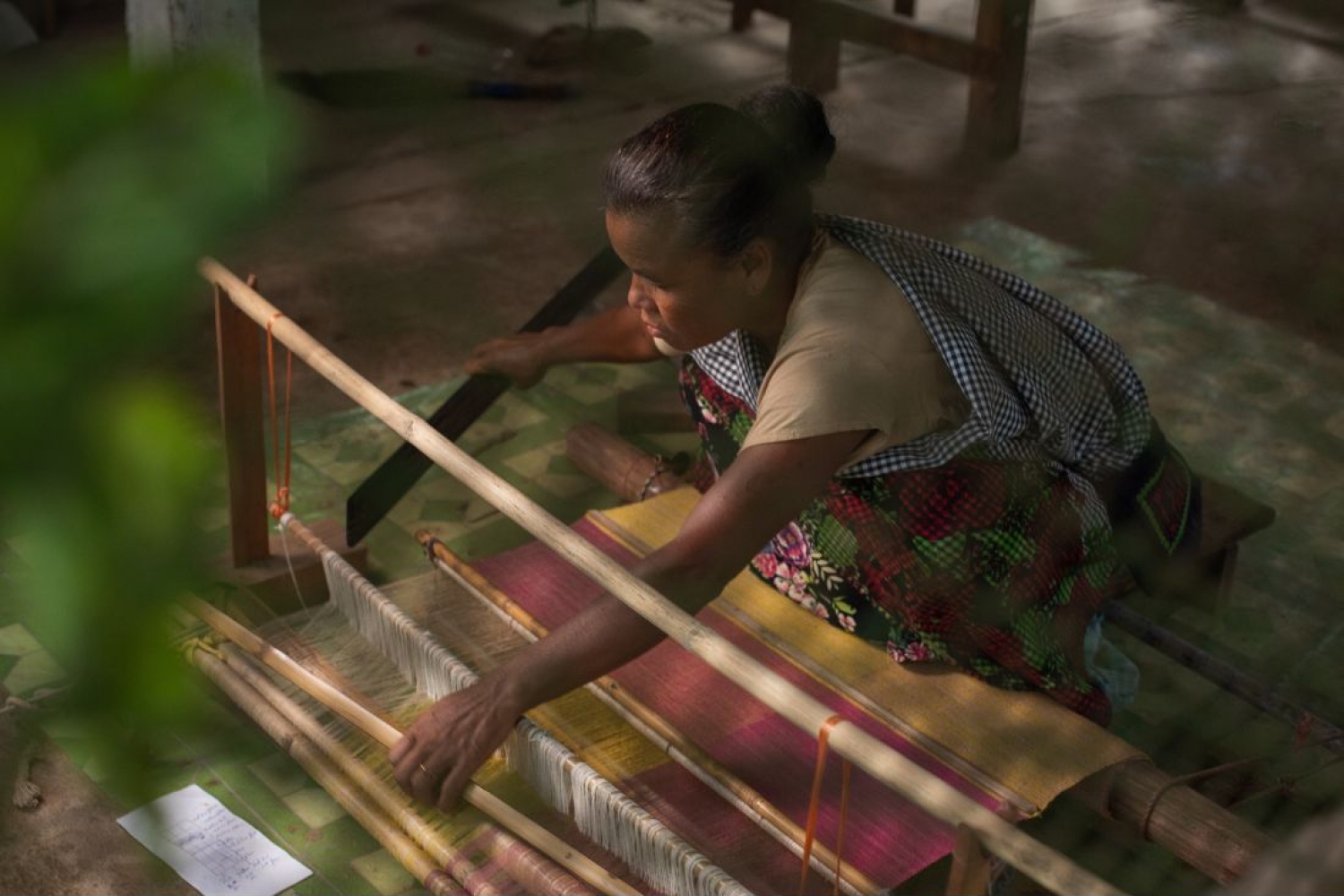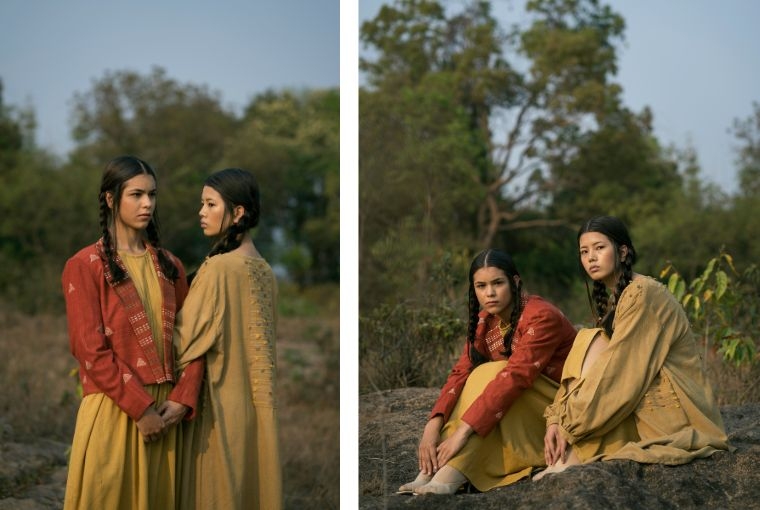

Established in 2016, Kiniho by Iba Mallai stands as a testament to the fusion of heritage and accountability. Inspired by the skilled artisans of her native Meghalaya, Mallai founded Kiniho with a profound desire to reconnect with her roots. However, her vision extended beyond personal aspirations; she envisioned Kiniho as a vehicle for community development, driven by a collective ethos of upliftment. Mallai's garments are meticulously crafted using indigenous plants for dyeing, fostering local cultivation initiatives and promoting environmental stewardship. The label's preference for eri silk, handwoven by Northeastern artisans, reflects a reverence for traditional craftsmanship and a conscious effort to support local economies.
In our conversation with Mallai, we delve into the ethos of her venture, exploring the profound significance of roots and responsibility in her creative journey. Through Kiniho, Mallai not only celebrates her cultural heritage but also embodies a profound commitment to social and environmental sustainability, ensuring that every garment carries a story of resilience, craftsmanship, and collective upliftment.
What led you to create Kiniho?
I wanted to start my own business when I was pursuing my Business Management, but I was not sure what kind of business. It was until I felt suffocated working in a corporate office, I knew I had to do something better and meaningful. Since my passion is towards fashion and textile, I decided to train myself in Fashion Design and soon after I completed the course, I decide to start my own sustainable clothing line. I wanted this business to create no harm to the environment. I wanted this business to have some meaning and a purpose, it should benefit not me alone and all those people who involves. I wanted to work with natural and sustainable material and that led me to come back home to my community who have been practicing eri silk handweaving. My love towards textile and crafts and the love I have towards nature led me to start Kiniho.
Is Kiniho also an effort to connect with your roots?
I was far away from home for many years and my mother would call me every time persuading me to come back home. I was not sure with the decision to come back home. But I knew I want to stay connected with my roots wherever I am. The decision to start Kiniho was the way to connect back with my roots and was also the reason I decided to come back home to work with my community and to give back to the community.
Tell us about Eri Silk and what it means to you.
Eri silk is the most sustainable silk. Also, known as nonviolence silk or Ahimsa silk because silk worms are not killed to obtain the fibres. It has unique thermal properties as it is warm in winter and cool in summer.
Ribhoi community is my own community where I was born and raised. The community have been practicing this eri silk handweaving since ages. It is a heritage practice. Back then it was as a part of tradition and culture and one would weave for their own needs. Working with the community and this fibre means allowing us to help sustaining and preserving the craft. It also allows us to create jobs in the community that help support the livelihood income of the community.

What are your aspirations for Kiniho?
The aspirations for Kiniho is to be able to continuously work with the craft and innovate. Our focus is textile and traditional technique combining these two and create designs that reach across the world, that carries the stories of the the community.
Words Paridhi Badgotri
Date 29.02.2024